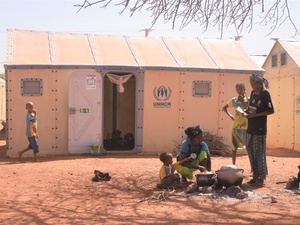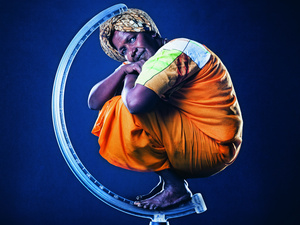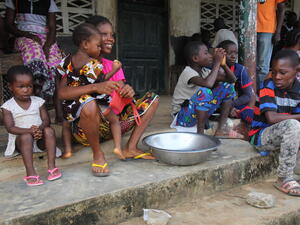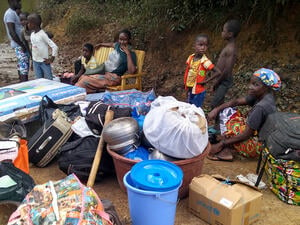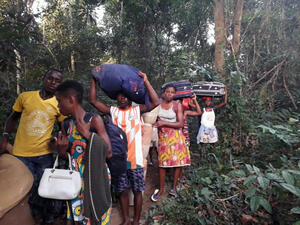Refugee influx from Togo slows dramatically
Refugee influx from Togo slows dramatically
The refugee influx from Togo into neighbouring Benin and Ghana has slowed dramatically since the weekend, along with signs that in Ghana refugees are beginning to return home. A combined total of some 23,300 refugees have been registered since the post-election outflow began on 26 April. There are 12,483 refugees in Benin and 10,856 in Ghana.
In Ghana, over the last two days, small numbers (18) of new arrivals were recorded at the main Aflao border post. The post is adjacent to the Togolese capital of Lomé. The new arrivals, however, have been significantly outweighed by the numbers of refugees beginning to return home as they feel the situation is calmer. On Monday, some 250 refugees returned to Togo via Aflao, following some 600 refugees who returned to Lomé on Sunday. Many were taking their belongings. Returnees said they'd heard on the radio that Lomé was calm, while others said they wanted to return to work on Monday. Many refugees have been working in Lomé by day and returning to sleep in Ghana overnight, saying they felt more secure. We are currently validating the numbers of returnees against recorded arrivals, and consolidating the refugee numbers. Virtually all refugees in Ghana had found shelter with family and friends.
In contrast, in Benin, there were no returns noted, with refugees saying they were not ready to go back to Togo under the current political situation. However, numbers of arrivals have also slowed, with only 162 new arrivals recorded at the main Hilakondji border crossing on Monday. This compares with more than a thousand per day earlier during the influx.
UNHCR is focusing on improving living conditions in the two camps set up in Benin at Lokossa and Come. This includes re-arranging the tents in Lokossa, where the population is growing steadily, as well as organizing garbage collection and sewage systems in both camps and at the Hilakondji transit centre.
In Ghana, in the Aflao area, some 700 refugees staying with host families have received relief supplies from UNHCR, including mosquito nets, blankets, mats, jerry cans and kitchen utensils. They have also received assistance from other aid agencies to help their host families to cope with their presence. UNHCR is targeting assistance based on specific needs.
On Wednesday, a food assessment team with representatives from the Ghanaian government, Catholic Relief Services, the World Food Programme, UNICEF, and UNHCR will field a mission along a 200-km stretch of border from Jasikan in the north to Aflao in the south in order to evaluate the food needs of the refugees staying in the area. Following the assessment, targeted food distribution will take place to ensure that those most in need effectively receive aid.



